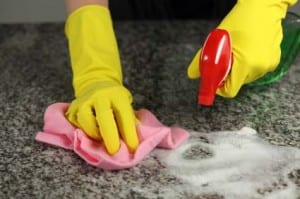What is modern slavery?
By news editor, on 2 November 2012

![]() Written by Neil Rodger, UCL Communications Manager
Written by Neil Rodger, UCL Communications Manager
So, what is modern slavery? That was the question posed in a Lunch Hour Lecture given by Dr Virginia Mantouvalou (UCL Laws), Co-Director of the UCL Institute for Human Rights.
Dr Mantouvalou takes the stance that forms of slavery exist in the UK and Europe today – particularly in the area that falls under the catch-all title of ‘domestic work’.
Domestic work can mean anything from care of children or the elderly, to cooking, cleaning and gardening. She explained that some of these domestic workers have their passports taken away and are often denied permission to leave the house.
Some even struggle to get enough food and water.
Various NGOs have expressed concern about the lack of governance over domestic work in the UK and the number of abuse claims that are registered. The claims registered break down as follows:
- 65% had their passports withheld by their employer
- 60% of those registered were not allowed out of the home unaccompanied
- 49% did not have their own room
- 26% were not given adequate meals
- 18% suffered physical abuse or assault
- 3% suffered sexual abuse
The audience was then shown a very moving video, where some of the victims of this kind of ‘slavery’ told their stories – emphasising the human cost behind the list of statistics. One of the victims of domestic slavery had escaped from a house in London, not far from UCL.
Dr Mantouvalou explained some of the legal factors that leave domestic workers open to abuse and a lack of freedom.
Domestic workers are excluded from large parts of the legislation that protects other UK workers, including vital areas such as maximum working hours, a minimum wage and health and safety requirements.
There is a strange quirk in UK law that workers who are living in the home come under a similar ruling to that covering family members and, thus, are exempt from any protection of income or wage levels.
Similarly, the 1974 Health and Safety at Work Act excludes domestic workers because they work in private houses, which are not legally covered by the act.
In reality, this means that domestic workers can legally be worked for as many hours as the employer demands, for as little money as the employer sees fit and in conditions that are not required to be safe for purpose.
In 2012, the UK government changed regulations covering domestic workers, meaning that workers who have come to the UK with an employer can not legally change to another employer.
In other words, they are now tied absolutely to the employer who brought them here. If they report their employer for any kind of mistreatment and it is then upheld, the worker will be deemed out of work and deported.
For some, this leaves a stark choice: powerless employment or poverty and deportation.
It all made for an interesting and troubling lecture, but there is some positive news among the doom and gloom.
A landmark ruling by the Court of Human Rights recently decreed that for the first time, domestic workers’ rights should be re-classified as human rights. As a result, Slavery, Servitude and Forced or Compulsory Labour became a criminal offence.
Last month, US President Barack Obama spoke out on the issue of domestic slavery: “When a man, desperate for work, finds himself in a factory or on a fishing boat or in a field, working, toiling, for little or no pay, and beaten if he tries to escape – that is slavery.
“When a woman is locked in a sweatshop, or trapped in a home as a domestic servant, alone and abused and incapable of leaving – that’s slavery.”
Further attempts at legislation include the Convention on Domestic Workers, a convention setting labour standards for domestic workers. It was signed by 396 countries.
The UK was not among them.
 Close
Close

